Post
Published on September 30, 2024
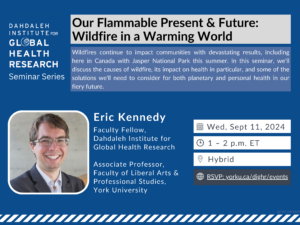
On September 11, 2024, Dahdaleh faculty fellow and Associate Professor at York University Eric Kennedy delved into wildfire management within the context of climate change focusing on how communities and governments can adapt to increasing frequency and intensity of wildfires.
Dr. Kennedy began by emphasizing that wildfire is a natural and necessary part of many ecosystems particularly in Canada, where half of the wildfires are caused naturally by lightning. He explained that many forests depend on fire for their regeneration. For example, species with "serotinous cones," such as certain pine trees, require fire to open their seeds and reproduce. Dr. Kennedy also highlighted the use of fire by Indigenous communities for land management, which is a practice largely suppressed during colonization, leading to the accumulation of fuel that now exacerbates modern wildfires.
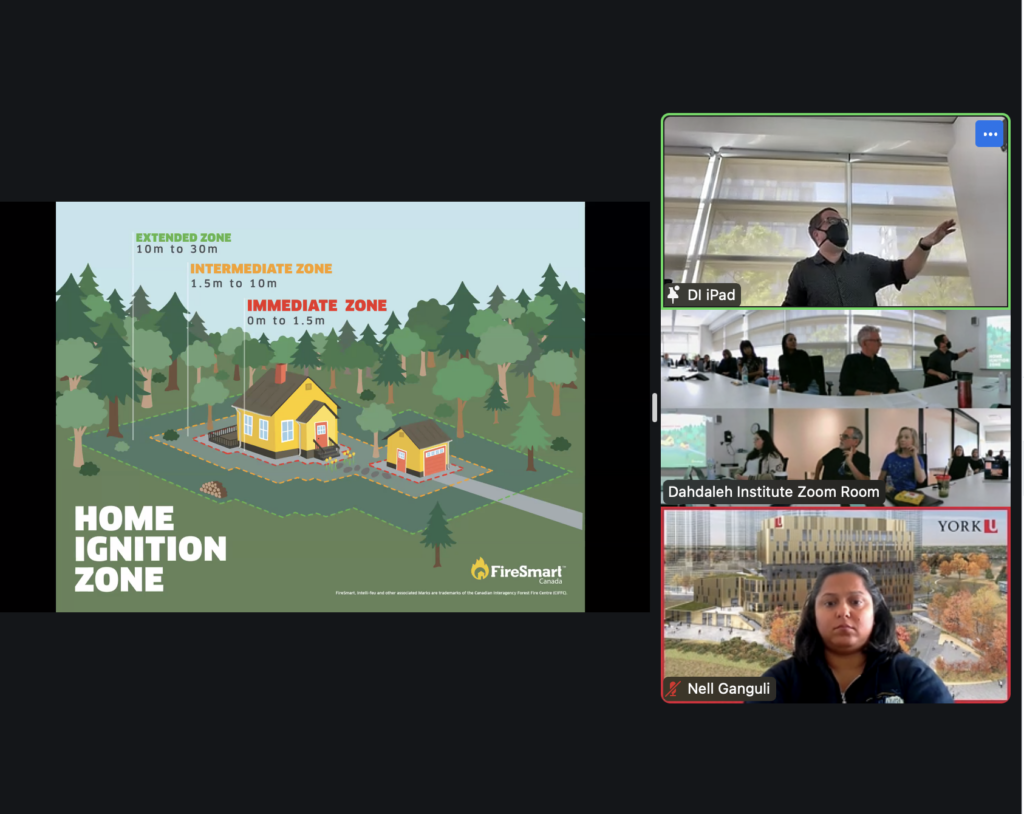
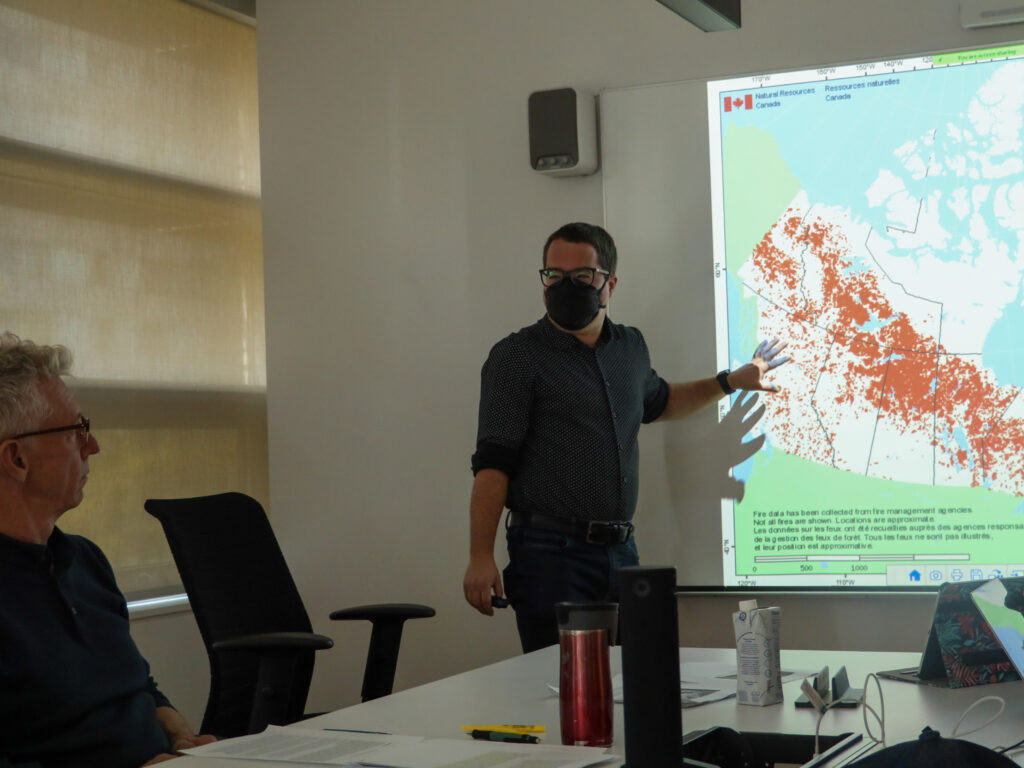
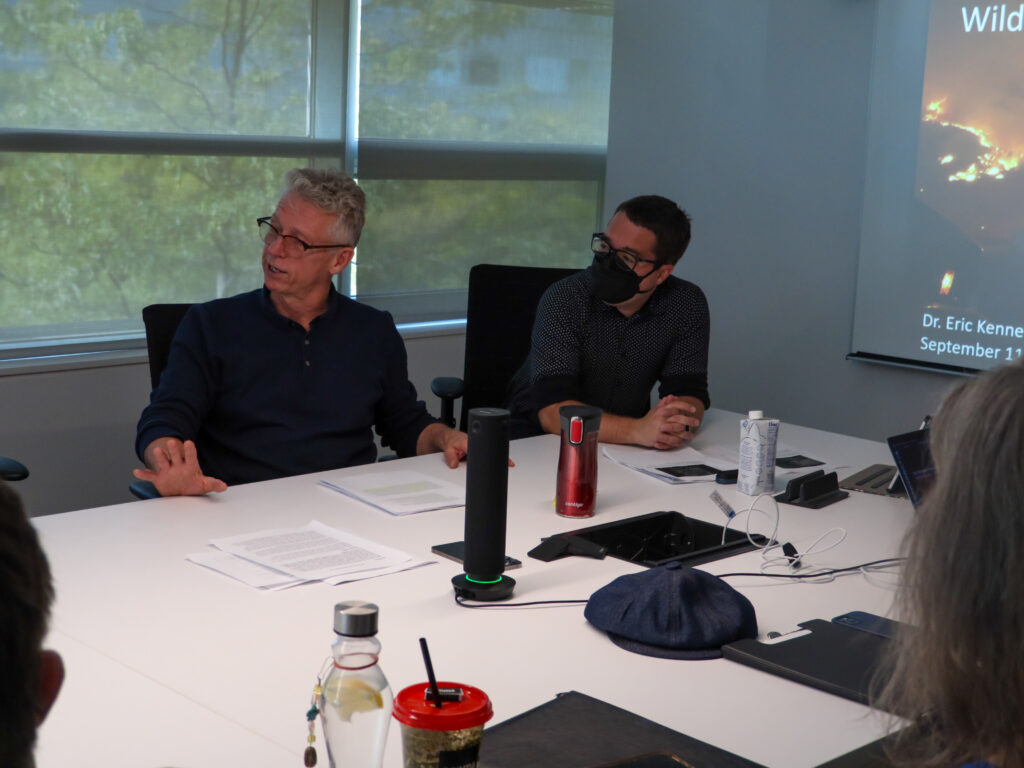
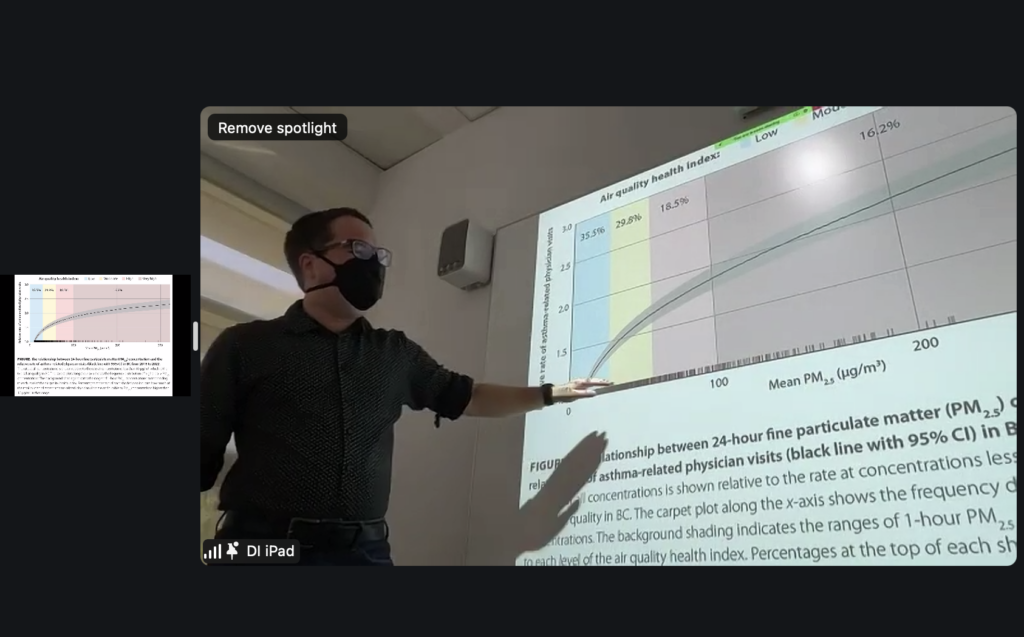
While fires are natural, Dr. Kennedy argued that the scale and frequency of wildfires today – and their impacts on our communities – are significant. He illustrated this by referencing the 2023 wildfire season in Canada, which burned an astounding 18.5 million hectares, a distinct contrast to the typical annual average of 1-2 million hectares. This increase was driven by many factors, including location and weather. However, these massive fires emitted significant carbon into the atmosphere, contributing to a global feedback loop of climate change.
Dr. Kennedy also discussed the challenges of fighting wildfires, noting the increasing intensity of fires, driven by climate change, making them nearly impossible to combat. He referenced Australia’s "catastrophic" fire danger category, where authorities now advise citizens to evacuate early rather than attempt to defend their homes. Similarly, he described the tragic 2016 Fort McMurray fire, where entire neighborhoods were lost, and the limitations of current firefighting capabilities became evident. The seminar concluded by stressing the importance of changing how society thinks about fire, moving away from full suppression toward living with and managing fire as a natural part of the environment.
Watch the seminar presentation below: https://youtu.be/Mv-9sZLxIps
Themes | Planetary Health |
Status | Active |
Related Work |
N/A
|
Updates |
N/A
|
People |
You may also be interested in...
Recap – Climate Change Threatens to Cause Greater Resource Insecurity, Greater Poverty, and Poor Health Outcomes
On February 1, over 40 attendees were introduced to Godfred Boateng's research programs – he discussed some examples of current global environmental changes that have destabilized the earth's climate and threaten to cause resource insecurity, ...Read more about this Post
Congratulations! Jude Kong Selected to Develop Global South Artificial Intelligence for Pandemic and Epidemic Preparedness and Response Network
The five-year project is aimed at ensuring vulnerable and at-risk populations are included in disease outbreak management and policies. At a time when the risk of emerging or re-emerging infectious diseases (ERIDs) is increasing, an ...Read more about this Post
Recap — Experiential Education and Training at the 2022 Planetary Health Film Lab in Ecuador
On September 13, 2022, Dahdaleh research fellow Mark Terry debriefed the events at the third Planetary Health Film Lab (PHFL) workshop. This year, in partnership with local universities in Ecuador: Escuela Politécnica Nacional Universidad, Pontifical ...Read more about this Post
